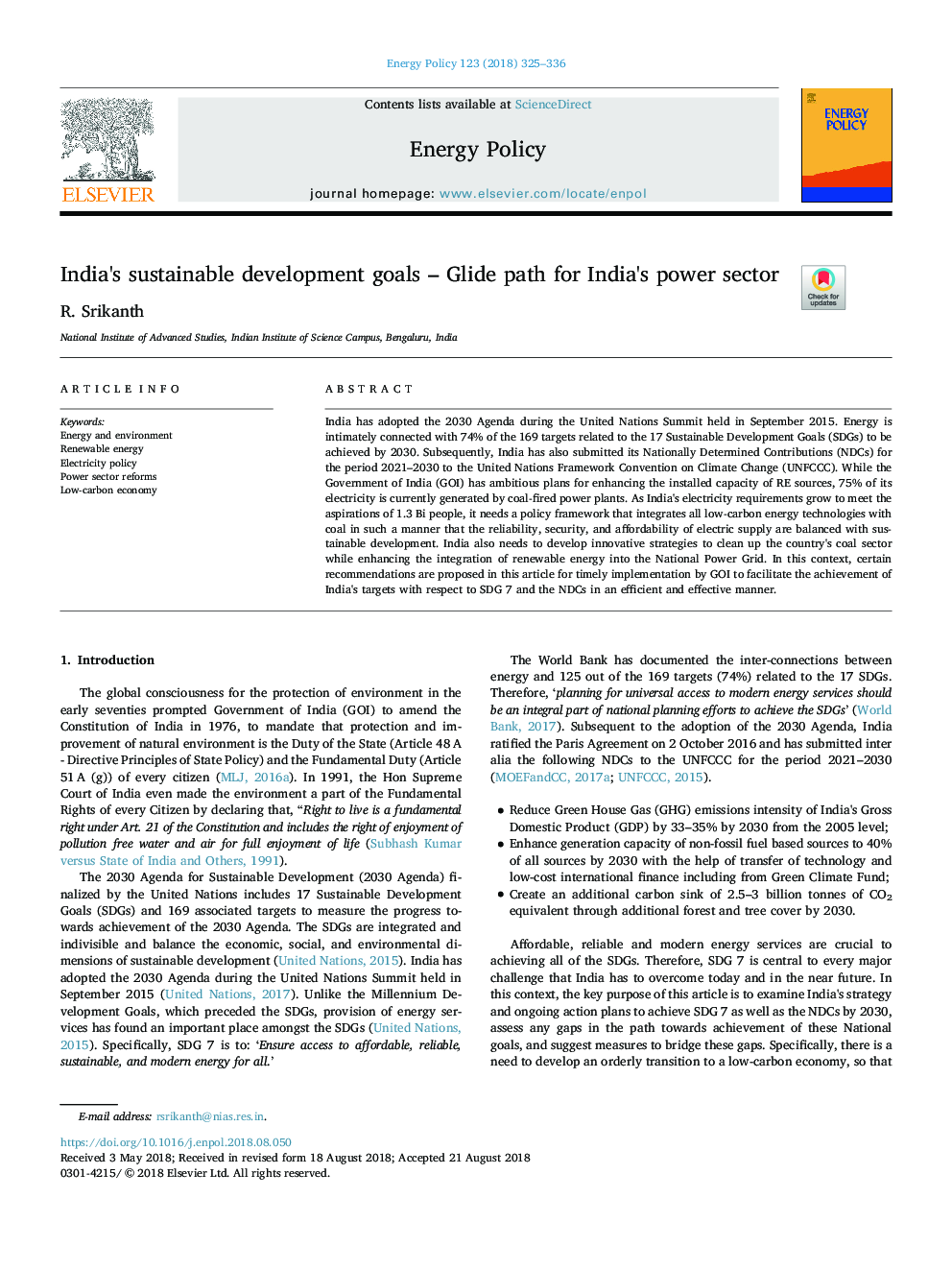| Article ID | Journal | Published Year | Pages | File Type |
|---|---|---|---|---|
| 10134651 | Energy Policy | 2018 | 12 Pages |
Abstract
India has adopted the 2030 Agenda during the United Nations Summit held in September 2015. Energy is intimately connected with 74% of the 169 targets related to the 17 Sustainable Development Goals (SDGs) to be achieved by 2030. Subsequently, India has also submitted its Nationally Determined Contributions (NDCs) for the period 2021-2030 to the United Nations Framework Convention on Climate Change (UNFCCC). While the Government of India (GOI) has ambitious plans for enhancing the installed capacity of RE sources, 75% of its electricity is currently generated by coal-fired power plants. As India's electricity requirements grow to meet the aspirations of 1.3 Bi people, it needs a policy framework that integrates all low-carbon energy technologies with coal in such a manner that the reliability, security, and affordability of electric supply are balanced with sustainable development. India also needs to develop innovative strategies to clean up the country's coal sector while enhancing the integration of renewable energy into the National Power Grid. In this context, certain recommendations are proposed in this article for timely implementation by GOI to facilitate the achievement of India's targets with respect to SDG 7 and the NDCs in an efficient and effective manner.
Keywords
Related Topics
Physical Sciences and Engineering
Energy
Energy Engineering and Power Technology
Authors
R. Srikanth,
